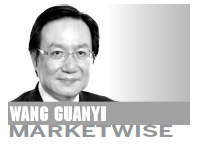Monetary policies divide world into two camps
Updated: 2010-11-09 06:50
(HK Edition)
|
|||||||||

The US Federal Reserve acted last week on its much-anticipated second round of quantitative easing (QE2) by buying an additional $600 billion of Treasuries through June 2011. This expands on its record stimulus package and is an effort to reduce unemployment and avert deflation. Originally, it was reported that purchases might be higher but after a series of encouraging economic data and earnings reports, the case for a one-off large scale QE no longer seemed appropriate. Since December 2008, interest rates have remained low at 0 percent to 0.25 percent with core inflation at almost zero.
The impact of QE2 provides a welcome level of support for the US economy. Effectively, the US Fed has repaired its own balance sheet through purchases of treasuries in exchange for its mortgage-backed securities (MBS) and agency debt. By exporting its own inflationary pressures overseas through excess liquidity, corporate balance sheets may also improve on the back of higher asset prices. With the ability to change and act accordingly through securities purchases, the Fed has given itself the option to wait and see how the US economy will recover and to what extent assistance will be needed.
QE2 will increase inflationary pressures for some emerging countries and their asset prices will remain at high levels. The US Fed is using QE2 to increase the money supply in order to reduce the debt burden. US policymakers have accepted some levels of inflation in hopes of boosting domestic consumption and reducing the country's level of unemployment.
We believe the world falls in two camps: the first being the "QE Camp" including the US, UK, and Japan; the second being the "non QE camp" consisting of emerging market economies which is led by China. The former has and will continue to loosen its monetary policy in efforts to revive economies, devalue currencies and inflate asset prices. The "non QE camp" is focused on containing inflationary pressures through tighter monetary policies.
In the "non QE camp", China has recently raised interest rates by 0.25 percentage point for both lending & deposit rates on the back of renewed inflationary concerns. In its third quarter macroeconomic report, the People's Bank of China raised warnings of rising food prices, wages and commodity prices. China's consumer price index (CPI) climbed to 3.6 percent year-on-year in September and is expected to rise to 4 percent year-on-year in October. This exceeded the Central Government's goal of keeping inflation below 3.5 percent - it was at 3 percent at the beginning of the year. The rising CPI is eroding the purchasing power of the people and the higher price of food, energy, rent, and wages, could weaken China's competitiveness.
Additionally, gasoline prices are at high levels and adverse weather conditions have created a shortage in soft commodities leading to further price increases in that segment. In 2010, China suffered from a series of droughts and dust storms. Moreover, floods in China began in early May 2010. Consequently, most soft commodities including agricultural goods such as corns, experienced record high prices.
China will be carefully watching the inflation level as it deals with other important issues such as the inflow of hot money, and yuan revaluation. The so-called "hot money" inflow has been a prolonged issue for China as this will directly inflate asset prices. As previously discussed, the yuan is also another major concern and China will have to gradually appreciate its currency according to the relationship between exports and domestic demand.
As we are approaching the year's end, central bankers around the world will watch carefully the impacts of QE from the "QE Camp" and monetary tightening from the "non QE camp". A measured pace of intervention by central banks and other regulators is what we have seen this year and expect to continue until year-end.
The author is a visiting professor at the Asian International Open University, an international financial commentator at NOW business news channel and founder of www.wongsir.com.hk.
(HK Edition 11/09/2010 page2)